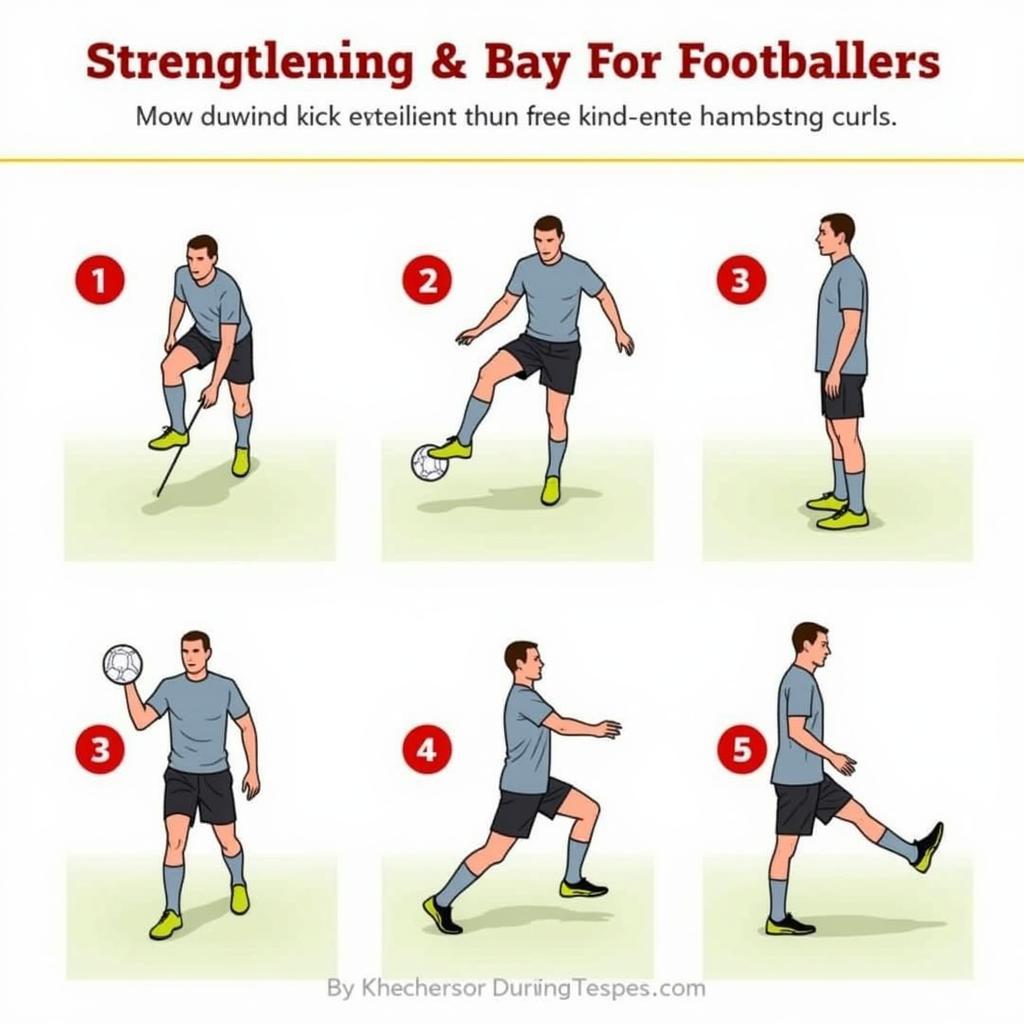Footballer’s Nightmare: Knee Injuries and Free Kicks
December 8, 2024Knee injuries are a dreaded reality for any footballer, especially when executing a powerful free kick. The force and strain involved can put immense pressure on the knee joint, making it susceptible to injuries ranging from minor sprains to severe ligament tears. This can significantly impact a player’s performance and even sideline them for extended periods.
The Mechanics of a Free Kick and Knee Strain
A free kick, particularly one aimed at generating power and curve, involves a complex sequence of movements. The planted leg absorbs significant force as the kicking leg swings through, creating torque and stress on the knee. This can lead to various injuries, including meniscus tears, ACL or MCL sprains, and patellar tendonitis. The repetitive nature of free kick practice can further exacerbate these risks.
Common Knee Injuries from Free Kicks
- Meniscus Tears: These occur when the cartilage that cushions the knee joint is damaged, often due to twisting motions during a free kick.
- ACL/MCL Sprains: These ligament injuries are caused by sudden changes in direction or impact, common in the dynamic movements of a free kick.
- Patellar Tendonitis: Overuse and repetitive stress on the patellar tendon, which connects the kneecap to the shinbone, can lead to inflammation and pain, particularly during free kicks.
The impact of these injuries can be devastating for a footballer. Time off the field, extensive rehabilitation, and even surgery can be required, impacting a player’s career trajectory and team performance.
Preventing Knee Injuries in Free Kicks
Preventing knee injuries during free kicks is crucial for maintaining peak performance and longevity in football. This involves a combination of proper technique, conditioning, and recovery strategies.
Key Prevention Strategies
- Warm-up: A proper warm-up routine, including dynamic stretches and light cardio, prepares the muscles and joints for the stresses of a free kick.
- Technique: Correct kicking technique distributes force evenly across the body, reducing strain on the knee. This includes proper foot placement, body alignment, and follow-through.
- Strengthening: Targeted exercises can strengthen the muscles surrounding the knee joint, providing stability and support.
- Flexibility: Maintaining flexibility in the hamstrings, quads, and hip flexors is essential for optimal knee function during a free kick.
- Recovery: Adequate rest and recovery between training sessions and matches allow the body to repair and rebuild, reducing the risk of overuse injuries.
 Knee Strengthening Exercises for Footballers
Knee Strengthening Exercises for Footballers
Dr. Emily Carter, a leading sports physician, emphasizes the importance of preventative measures: “Knee injuries can often be avoided with a proactive approach to training and recovery. Proper warm-up, correct technique, and targeted strengthening exercises are essential for protecting the knee joint from the stresses of a free kick.”
Recovery from a Free Kick Knee Injury
If a knee injury does occur during a free kick, proper management and rehabilitation are crucial for a full recovery. This typically involves a combination of rest, ice, compression, elevation (RICE), physical therapy, and, in some cases, surgery.
Rehabilitation and Return to Play
The recovery process varies depending on the severity of the injury. Minor sprains may heal within a few weeks, while more severe injuries can require months of rehabilitation. Working closely with a physiotherapist is essential to regain strength, flexibility, and stability in the knee. A gradual return to play is crucial to prevent re-injury and ensure long-term health.
Professor Robert Jones, a renowned orthopedic surgeon, advises: “Patience and adherence to a structured rehabilitation program are key to a successful recovery from a knee injury. Rushing the process can lead to further damage and prolong the recovery timeline.”
In conclusion, knee injuries related to free kicks are a serious concern for footballers. By understanding the mechanics of these injuries, implementing preventative measures, and seeking appropriate treatment and rehabilitation, players can minimize their risk and maintain peak performance on the pitch. Remember, prioritizing knee health is vital for a long and successful football career.
FAQ
- What are the most common knee injuries in football related to free kicks?
- How can I prevent knee injuries while taking free kicks?
- What is the recovery process for a knee injury sustained during a free kick?
- How important is proper warm-up before taking free kicks?
- What are some effective knee strengthening exercises for footballers?
- When can I return to playing football after a knee injury?
- What should I do if I experience knee pain during or after a free kick?
For further information on injury prevention and recovery, please see our articles on “Hamstring Injuries in Football” and “Ankle Sprains: Prevention and Treatment”.
If you need any support, please contact Phone Number: 0396443476, Email: [email protected] Or visit us at: 23 Tháng 3, Đắk Nia, Gia Nghĩa, Đắk Nông, Việt Nam. We have a 24/7 customer service team.